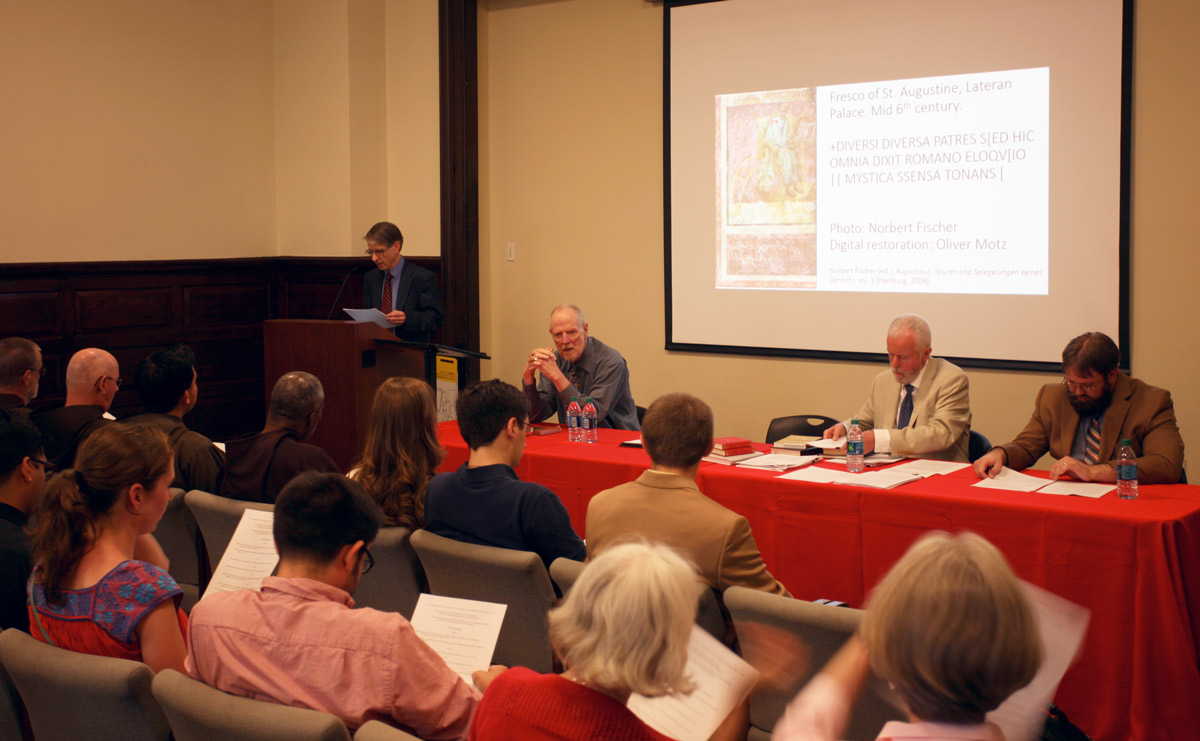

Addressing an overflow crowd in the Monsignor Happel Room of Caldwell Hall last month, three Catholic University professors outlined the ways in which their separate disciplines have studied and taught St. Augustine’s best-known work, the Confessions, over the past century. All three are teaching courses on the work this semester.
The Confessions has been studied at Catholic University since the University’s founding.The Sept. 12 event was sponsored by the Center for the Study of Early Christianity. Andrew W. Mellon Distinguished Professor of Early Christian Studies Philip Rousseau introduced the speakers.
William Klingshirn, Margaret H. Gardiner Professor of Greek and Latin and director of the Center for the Study of Early Christianity, focused on the study of the work in the Department of Latin Language and Literature by faculty and graduate students, mostly Catholic sisters, during the early 20th century. One of the fruits of this collaboration was the publication of a textbook in 1931 by the Rev. James Marshall Campbell and Martin McGuire (still in print) that made the case for the inclusion of the Confessions in the classical Latin curriculum.
Kevin White, associate professor of philosophy, then spoke about the work’s strong appeal to 20th-century philosophers such as Martin Heidegger and Ludwig Wittgenstein. He particularly highlighted work in the University’s School of Philosophy, beginning with a highly respected translation by the former dean of the school, Monsignor John K. Ryan, published in 1960 by Doubleday. He also pointed to important papers by the school’s more recent faculty, including its current dean, John C. McCarthy.
The final speaker was Thomas Clemmons, assistant professor of Church history. He spoke about the work’s great theological potential, which he argued remains to be more fully explored by theologians. While acknowledging the reputation of the Confessions as a classic of Christian spirituality, he also noted some of its other theological themes, such as the importance of community in Augustine’s understanding of salvation.
The talks were followed by a Q&A session and a reception. Audio of the talks is available on the Early Christian Studies website.
Following on this event, on Oct. 11 through 13 the Center for the Study of Early Christianity will host a marathon public reading of the Confessions in the McMahon Hall foyer. The reading will be in English. Over 40 readers — including students, faculty, and administrators — will read the entirety of the work over this three-day period.